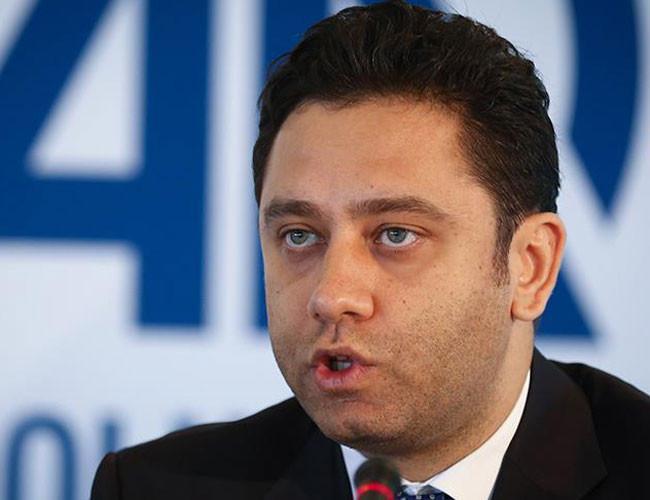
Turkey will transform from an end user to an intermediate user with the commissioning of the second line of the TurkStream natural gas project, while eliminating transit risks through Ukraine, Volkan Özdemir, head of the Ankara-based Institute for Energy Markets and Policies (EPPEN), said in an interview with Anadolu Agency.
Russia will sell gas to Europe via Turkey for the first time, which will lead to the forging of more interdependent relations between Russia and Turkey, Özdemir told Anadolu Agency, confirming the economic and political returns of this pipeline project.
“This is a very important win for Turkey,” he said, adding that, “Turkey, with more than 30 years of natural gas trade with Russia, has not previously experienced such a situation.”
He said Turkey is now in a position through the TurkStream project to eliminate Ukrainian transit risks at a time when tension between Russia and Ukraine is still ongoing.
“The tension between Russia and Ukraine is continuing, while the contract period between the two will end in a year’s time. Any crisis in Ukraine would have serious repercussions for Turkey. However, Turkey with the TurkStream project will be protected,” he asserted.
Russia, nonetheless, is also evaluating Bulgaria and Greece as routes for the project’s second line, Özdemir said, and confirmed that Bulgaria is looking like the preferred route for the Russians.
He affirmed that in economic terms, the Bulgarian route seems likely. He explained that with the construction of a 100-km pipeline between Serbia and Bulgaria, a route from Bulgaria to Serbia, Hungary and to Austria is possible providing reverse flows.
Özdemir also referred to the political factors at play with the Greek option.
“The U.S., Ukraine and Greece are moving together,” Özdemir said, in response to the recent problems between the Fener Greek Orthodox Patriarchate and the Russian Orthodox Church.
The relations between the Orthodox churches have been strained due to the request of Kiev Patriarchate in Ukraine to gain independence from the Russian Orthodox Church. In 2018, the Kiev Patriarchate sent its request for independence to the Fener Greek Patriarchate in Istanbul.
On Oct. 11, the Ukrainian Orthodox Church agreed to become independent of the Russian Orthodox Church during a meeting held at Fener Greek Patriarchate in Istanbul. Later, on Oct. 15, the Russian church cut ties with the Fener Greek Patriarchate, and described the Patriarchate’s decision on Ukrainian autocephaly as “dissent.”
“Russians in response to this are focusing on the Bulgarian option, and not on Greece. Therefore, in this sense, I think that a political preference will be made by the Russians,” he concluded.
